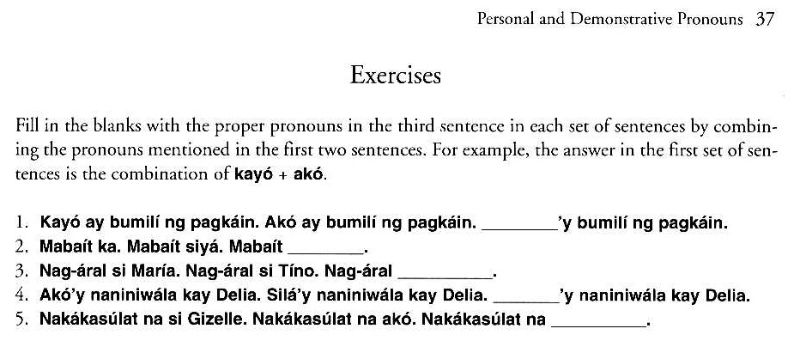I'm pretty sure that the answer will be "tayo'y", short for "tayo ay". Remember only pronouns can be answers here (e.g. ako, kami, tayo, sila etc).
I'll do the first two exercises below so you get to see the answers, and the explanation. Hopefully this will help:
1) Tagalog: Kayo ay bumili ng pagkain. Ako ay bumili ng pagkain. Tayo'y bumili ng pagkain.
English: You [more than one person] are buying food. I am buying food. We [or you and I] are buying food.
Explanation: You need an actor focus (or "ANG") pronoun that combines "you" and "I". The only pronoun that does this is "tayo".
2) Tagalog: Mabait ka. Mabait siya. Mabait kayo.
English: You are kind. She is kind. You [are both] kind.
Explanation: You need an actor focus or ANG pronoun combining "you" and "she", and is plural. In other words, you need a plural of "you". "Kayo" is the word that does this best.
I went through the explanations briefly as I assume you've seen the ideas behind the pronouns before in the book but need a refresher. But if you have any more questions, feel free to ask!








